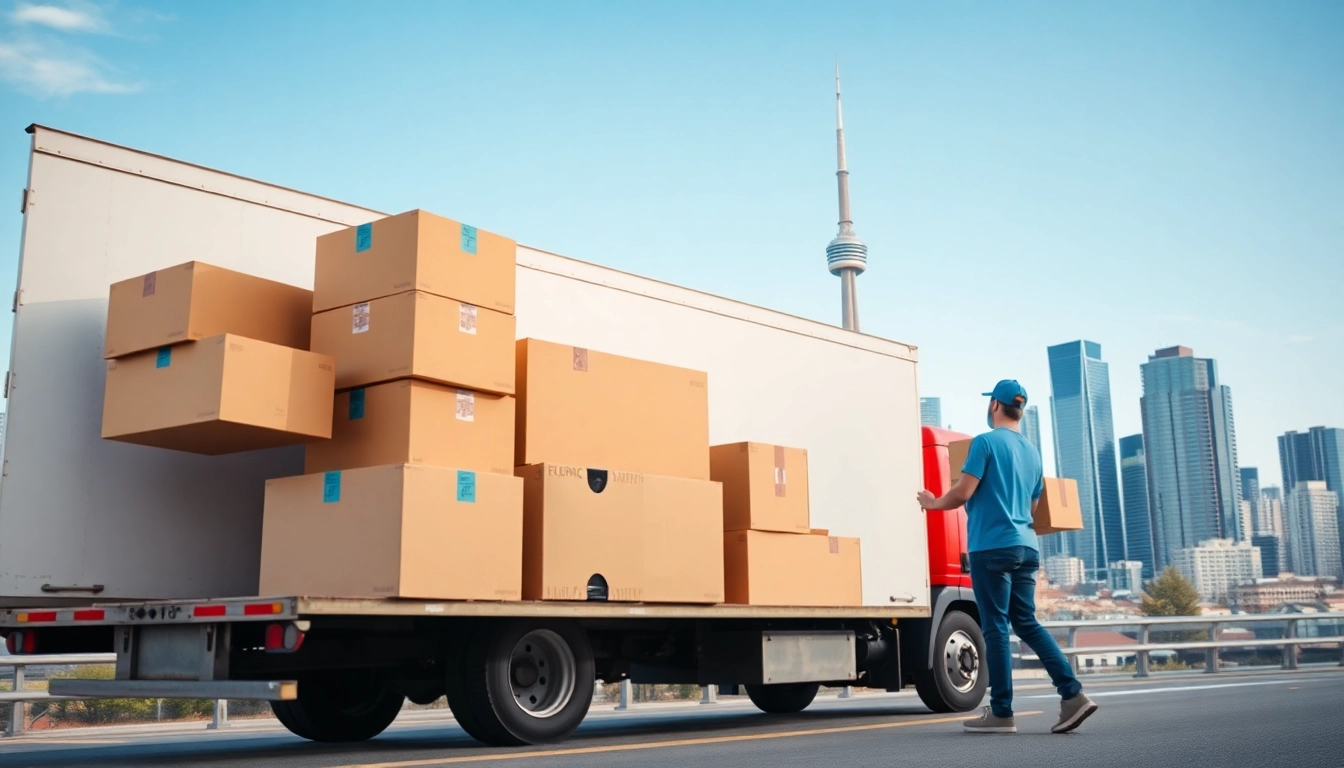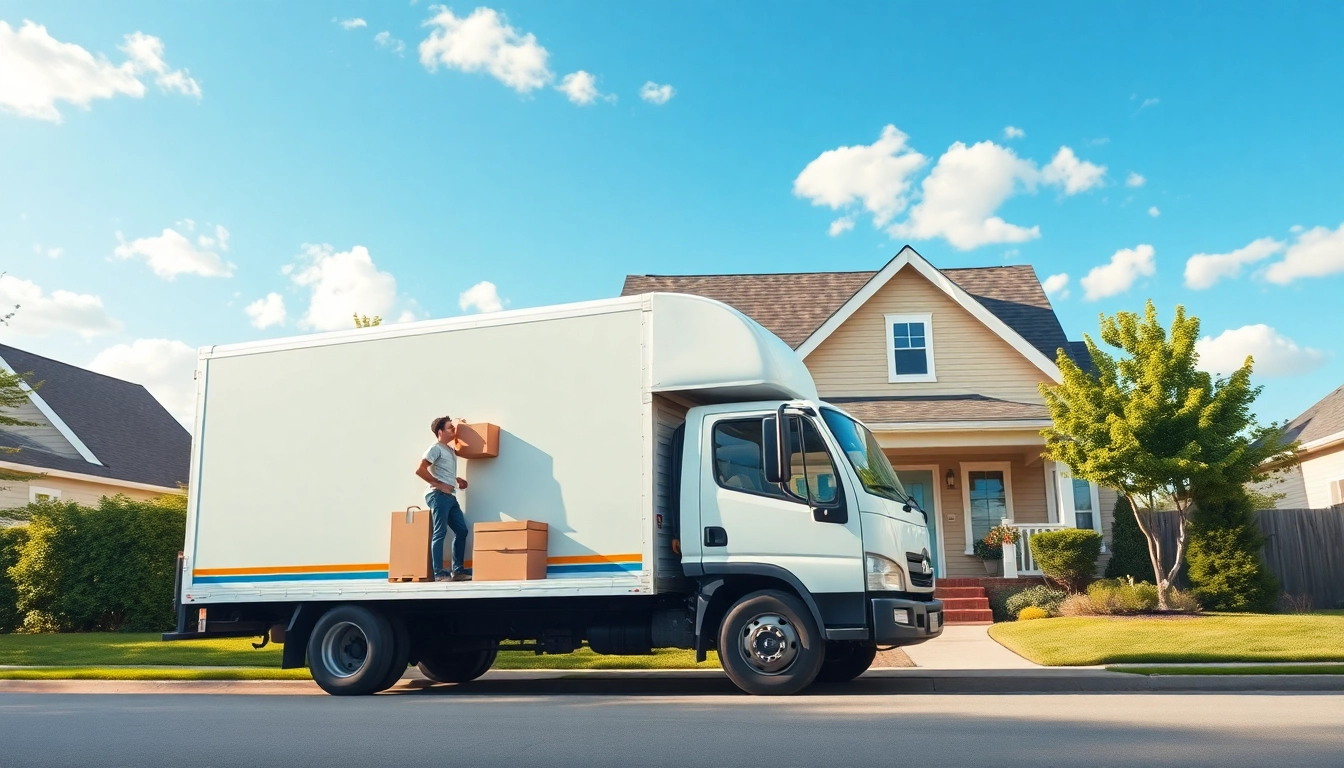Understanding Moving Services in Toronto
Relocating can be a complex endeavor, especially in a bustling city like Toronto. With its diverse neighborhoods, bustling traffic, and varying regulations, ensuring a smooth move often requires professional expertise. The landscape of moving services in Toronto is rich and varied, tailored to meet the needs of a wide array of clients. Whether you are moving across town or across the country, understanding these services will help you make the best choice for your needs. Many moving companies offer packages that cover everything from household shifting to commercial moves, packing services, and even specialized transport for delicate items. This is why exploring your options is critical when planning a move. Using comprehensive resources and clear insights can help streamline your relocation process. For more details on these options, consider exploring moving services in Toronto to see what might suit your needs best.
Types of Moving Services Available
The types of moving services in Toronto are as diverse as its population. Below are the most commonly offered services designed to cater to various moving needs:
- Residential Moves: These services cater to individuals or families moving from one residence to another, whether it’s homes, apartments, or condos.
- Commercial Moves: Tailored for businesses relocating office spaces or retail stores, these moves often require more planning due to business operations schedules.
- Long-Distance Moves: For those moving greater distances, including inter-provincial or cross-border, specialized logistics and planning are essential.
- Storage Solutions: Many moving companies offer secure storage facilities for items that cannot be moved immediately or require temporary housing.
- Packing and Unpacking Services: Professional assistance in packing can save time and reduce stress, while unpacking services help you settle in without the hassle.
- Specialized Moving Services: This category includes handling fragile items, pianos, fine art, or sensitive electronic equipment, requiring special care and consideration.
Choosing the Right Service for Your Needs
To effectively choose the right moving service, you need to consider several factors:
- Type of Move: Determine whether your move is residential, commercial, local, or long-distance. Each type has unique requirements.
- Budget: Evaluate your budget to understand what moving services can be accommodated. Different companies have varying price ranges and packages.
- Timeline: Assess your moving timeline. Some companies offer a more expedited service at a premium, while others may need advance booking.
- Services Needed: Consider whether you need packing, unpacking, or storage solutions along with transport.
- Reviews and Recommendations: Look at customer reviews, testimonials, and recommendations to gauge reliability and service quality.
How to Prepare for Your Move
Preparation is key to a successful move. Here are steps to ensure you are ready:
- Create a Moving Inventory: List all the items you plan to move. This inventory will help in estimating the time and resources needed.
- Notify Important Parties: Inform your utility providers, banks, and other essential contacts about your change of address.
- Gather Packing Supplies: Collect boxes, tape, bubble wrap, and other packing materials that will make your packing process smooth.
- Declutter: Go through your belongings and decide what to keep, donate, or discard. This reduces moving costs and eases the overall process.
- Confirm Details with Your Mover: Confirm dates, times, and expectations with your chosen moving company to avoid last-minute issues.
Advantages of Hiring Professional Movers
While some may consider a DIY move, hiring professional movers presents many advantages that can simplify the process and minimize stress. Understanding these benefits can guide your decision-making.
Benefits of Moving Services in Toronto
Hiring professional movers provides numerous advantages, including:
- Expertise: Trained professionals know the best practices for packing, loading, and unloading, ensuring your belongings are protected.
- Efficiency: Movers typically work faster than individuals moving on their own, which can save time, especially on a tight schedule.
- Access to Equipment: Professional services often come equipped with specialized tools and vehicles designed for moving, which can make the job considerably easier.
- Safety: Movers are trained to lift and handle heavy objects, minimizing risks of injury to you and damage to your possessions.
Cost-Effectiveness of Professional Help
While the upfront cost of hiring movers may seem significant, it’s essential to consider the long-term financial implications:
- Reduced Risk of Damage: Insurance and liability coverage offered by movers can protect you against losses from damage during transport.
- Time Savings: Consider the time you will save and how that can translate into money saved if moving affects work or other obligations.
- Less Stress: The peace of mind that comes from letting professionals handle logistics can lead to a far more enjoyable moving experience.
- Bulk Discounts: Many moving companies offer discounts for bundled services, which can lead to overall cost savings.
Safety and Insurance When Moving
Safety is a paramount consideration during any move. Professional movers offer various levels of insurance that can protect your belongings:
- Basic Liability Coverage: This is typically included in the moving price and covers a specific amount per pound of damaged goods.
- Full Value Protection: This premium coverage ensures that your items will be either replaced or repaired when damaged, adding peace of mind.
- Understanding Exceptions: Familiarize yourself with which items are often not covered by insurance, such as high-value items without declarations or improper packaging.
Common Challenges in Moving
Even with professional help, moving can present challenges. Being prepared for these scenarios can help mitigate stress and complications.
Handling Fragile Items Safely
Transporting fragile items like glassware, art, and electronics requires careful planning:
- Use High-Quality Packing Materials: Invest in bubble wrap, foam protectors, and strong boxes to provide adequate protection for fragile items.
- Label Clearly: Use “Fragile” labels on boxes containing sensitive items to alert movers to handle them with care.
- Keep Important Items with You: For especially valuable or delicate items, consider keeping them with you during the move.
Scheduling and Timing Conflicts
Scheduling issues can arise, particularly in a busy city like Toronto. Tips for effective scheduling include:
- Book in Advance: Secure your moving date well ahead of time, especially during peak moving seasons.
- Communicate Openly: Make sure both you and your moving team confirm the schedule multiple times leading up to the move.
- Have a Backup Plan: In case of delays, prepare a plan B to minimize disruptions to your schedule.
Dealing with Unexpected Issues
Moving can lead to unexpected challenges, from weather changes to equipment failures. Here’s how to stay prepared:
- Plan for Weather: Keep an eye on forecasts and have contingencies for bad weather, such as muddy grounds or heavy rain.
- Stay in Contact: Regular communication with your moving team can help resolve issues quickly as they arise.
- Allocate Extra Time: Build buffer time into your moving schedule to manage unforeseen slowdowns.
Tips for a Successful Move
Successful relocations hinge on solid planning and execution. Here are actionable tips to facilitate your move:
Creating a Moving Checklist
A comprehensive moving checklist ensures no detail is overlooked:
- Start Early: Begin your checklist at least a month before your moving date.
- Outline Tasks by Week: Break down tasks by week to make the process manageable.
- Include Deadlines: Assign specific completion dates to tasks for greater accountability.
- Track Progress: Use your checklist to mark off completed tasks to visualize your moving journey.
Organizing Packing and Unpacking
Effective organization during packing can ease your unpacking experience considerably:
- Room-by-Room Packing: Tackle one room at a time to avoid confusion, labeling boxes with their corresponding room and contents.
- Pack Non-Essentials First: Start with items you rarely use, leaving daily necessities until last.
- Prioritize Unpacking: Focus on the essentials first in your new home to settle in efficiently.
Communicating with Your Moving Team
Communication is critical to ensure that your move goes smoothly:
- Establish Clear Expectations: Discuss your moving requirements and preferences with your team beforehand to create alignment.
- Keep Information Available: Have a point of contact at the moving company to address questions or issues during the move.
- Provide Feedback: After your move, share constructive comments to help the moving company improve its service offerings.
Post-Move Considerations
Once the move is completed, there are still important tasks to consider to fully transition into your new home.
Setting Up Your New Home
To establish your new location effectively, consider the following:
- Unpack Systematically: Start with the essentials—like kitchen items, bathroom necessities, and bedroom essentials—before delving into less urgent areas.
- Decorate Gradually: Allow your new space to evolve by adding decor pieces over time rather than overwhelming the space right away.
- Get Acquainted with Your Neighborhood: Explore local amenities, parks, and services in your new area to create a sense of belonging.
Feedback and Reviews for Your Movers
Providing feedback is not only beneficial for your future decisions but also helps the moving company improve their services:
- Write Reviews: Share your experience online through platforms dedicated to service reviews.
- Offer Constructive Criticism: If you encountered issues, let the company know how they can improve, as this can lead to better service in the future.
- Refer Friends and Family: If satisfied, recommend the service to your network to support local businesses.
Community Resources in Toronto
After your move, leverage community resources to help settle in:
- Local Utilities: Ensure to set up or transfer your utilities to your name promptly.
- Community Centers: Join local community centers or groups to meet neighbors and engage in events.
- Public Services: Familiarize yourself with local public services, including garbage collection, local libraries, and emergency services.



